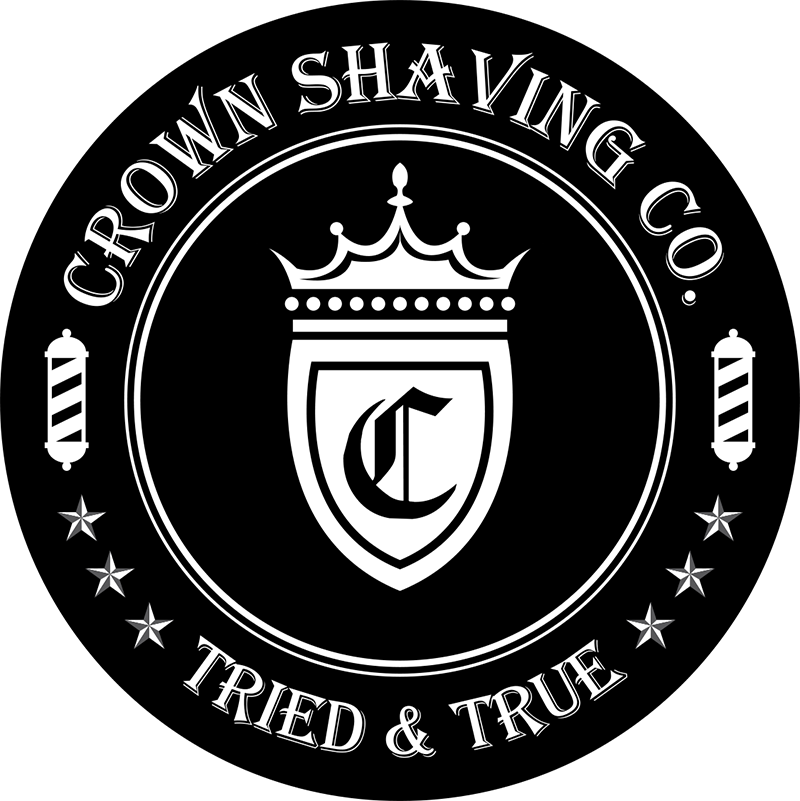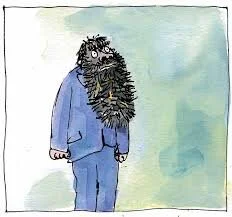Can Beards Breed And Harbour Viruses?
Image: Roalddahl.com
In the wake of all that’s happened the last three months, it’s a miracle beards are still standing.
If beards could talk—if they were independent, conscious forms of sentience—here’s what they’d be thinking right now: “Do you people think it’s fun having your relevance tossed around like we’re the current state of Hollywood content, or something? What, so we’re cool until it’s the end of days, when we go from cleavage equivalent to bacteria breeder? We always were and we always will be.”
And you know, the beards would be right in uttering such things. But would their arguments hold water in the courtrooms of science and reason?
All of this is to say there’s a reason beards would be bitter.
Wearing a beard took a hit two months ago when articles popped up online about beards harbouring coronaviruses. As if it wasn’t bad enough we had to worry about wiping door handles every minute. Now men are asking the Internet if their beards stow pathogens that could level humanity. In that CBC piece a couple lines up, Dr. Scott Weese, a veterinary professor at the University of Guelph who researches disease, was sourced as saying beards could technically store a virus, and if the wearer sneezes or coughs then “someone else happens to immediately kiss that person, there is a risk of transmission.”
The only problem is that same piece also asserts two contradicting premises before it gets to the Dr. Weese part. First, it says “no one knows for sure” regarding beards stowing viruses, but in the next line it reminds that “epidemiologists and infectious disease specialists do know is that the novel coronavirus can't tolerate most environments, including beards.”
It’s this kind of confusion that’s become a byproduct of rampant misinformation online, and who can judge? These are uncertain times, and when there’s a novel virus creeping about, people are going to get scared, and then they’re going to ask questions like the one at hand.
Definitely don’t do the “Toothbrush.” Image: Centers for Disease Control
Seeing as we deal in helping beards live well, covering this topic with nuance and objectivity was of the order. Also, we love beards, and many of you do, too. Many of you wear them, and with pride. And, hell, you ought to; they’re the purest, bluntest manifestation of masculinity that’s not called bar fights, and they’re ours and ours only. But if there’s even a slim chance our beards can put us in stretchers, then men should know.
We’ve hit up our resident dermatologist, Dr. Ben Barankin of the Toronto Dermatology Centre, and picked his brain about beards and breedings grounds for man-eating germs.
Let’s start with some basic hygiene when it comes to facial hair.
“Wearing a beard can result in what we call ‘seborrheic dermatitis,’ or basically dandruff on your face,” says Dr. Barankin. “Think redness, flaking, sometimes some mild itching, and an overgrowth of yeast on the face.” The Doc also says that “when you shave, you also exfoliate, which, yes, improves the general health of the skin.” Why is this important? What the doc is saying is that shaving your face means there’s less of a chance it’ll catch a skin disease, which is not technically the same as a Coronavrius that’ll go straight for your lungs.
Or, as Dr. Barankin confirms, “there is no increased breeding ground for viruses or bad germs if you wear a beard. As long as your hygiene is good—and it may require more diligent hygiene than not having a beard—then you’re likely fine.”
NPR ran an interesting story last April about this, too. In it, Dr. Amesh Adajla, an infectious disease expert and senior scholar at John Hopkins University’s Center for Health Security, reassures there’s “no evidence that having a beard, per se, makes you more or less vulnerable to the Coronavirus.” At the same time, Dr. Adalja also says if you’re sick and have a beard, one cough or sneeze might be all it takes to keep it there. Neither NPR nor Dr. Adalja say how long a beard could theoretically trap a bad bug.
It gets muddier when you bring in the mask topic, too. Based on a 2017 blog post published on the CDC.gov, styles like moustaches are okay if you need to wear a respirator “for work,” but full-on beards are no good. Again, that’s respirators, and ones that “rely on a tight facepiece seal to achieve maximum protection,” no less.
Whether or not cloth masks and beards don’t mix is another story, one with no research to back it as of yet.
One thing to keep in mind: The same post references a 2018 study and implies, like a ton of others did at the time, that beards are dirtier than dog fur. The idea that our beards are dirtier than the hair of animal that rolls on floor has since been debunked, by the way. Just saying.
So, does this mean beards beat germs, any day and anytime? Let’s not stretch things. What’s damn-near conclusive is that beards don’t, as this recent McGill University report puts it, “foster bacteria.” That’s different than saying they don’t catch—or spread—crap like COVID.
The more you dig on the topic, the faster you’ll see one’s best judgment should have final say.
For now, if you’ve got a beard and aren’t letting go, no one’s judging. But do heed the words of guys like Dr. Barankin and go hard when it comes to cleaning that thing (wink).
Don’t take any chances, you know?



